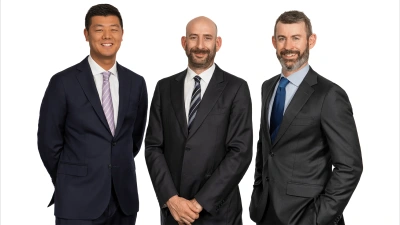Asset Owners Create a More Powerful Voice


Trials:
Around the world, institutional asset owners are facing new challenges. Whether it is growing inflationary pressures, political volatility, climate change, demographic and retirement shifts, or changing operational models, asset owners are facing a myriad of pressures.
Perks:
The good news is that they are increasingly coming together and driving the agenda across a range of issues that matter to them. They are taking a more active role in driving positive outcomes for their constituents and at the same time, creating a more powerful voice in the institutional investing industry.
How are they doing this?
They are building economies of scale through consolidation, spearheading new asset allocation models and approaches, moving into alternative and esoteric assets, pursuing active ownership and stewardship, building momentum around sustainability and Environmental, Social and Governance (ESG) factors, and embracing new digital and data insights to engage with investment managers on performance.
Consolidation is allowing asset owners to develop more analysis and insight into the performance of their managers. As asset owners come together and become bigger, they can afford to leverage things like data science, where they are able to look at what managers are doing and what the end result is. The focus is on greater attribution and how managers are converting ideas into performance.
Asset owners are also coming together in other ways, by forming consortiums to drive changes around key issues, particularly sustainability. They are collaborating with each other and with their investment management partners, for example on the reporting of ESG.
Even as they focus on ESG factors, asset owners are well aware that finding consistent performance remains a challenge. For many, the answer has been to move up the traditional risk curve by accessing alternative and esoteric asset classes like digital assets. The shift towards digital and private assets comes as asset owners are changing their broader asset allocation approaches in a search for alpha. Everything in the investment world is becoming hybrid. There is no more public or private, the conversation has moved beyond that to risk factors.
It is not just investment approaches that are becoming more hybrid. Large asset owners are increasingly acting like investment managers, through their direct investments, through the increased outsourcing of trading and other front office functions, and through their purchasing power. Drawing key insights from data has become a critical function of that hybrid transition, not only in order to build robust operational frameworks, but also for better integration of ESG factors and esoteric assets.
Future State:
The next decade will see more change as asset owners consolidate further, as they increasingly leverage technology and data management tools to generate insights and create standardisation, as they stand at the vanguard of environmental and social change, and as they build stronger, more transparent, and better governed models.
Whatever the complexities and opportunities, asset owners will continue to focus on the needs of their underlying stakeholders and constituents and put those stakeholders and constituents first.
Recommended for you
Hey, small business owner, have you been paying your super? It’s become common knowledge that small business owners are ...
Shaping the future: discover how global custodians are driving innovation through digital solutions in the Australian and New Zealand markets.
The world’s electricity grids are large, but they are about to become giants with the fundamental shift to the electrifi...
The journey towards achieving carbon neutrality, or net zero, by 2050 is not only essential for our planet but also incr...













